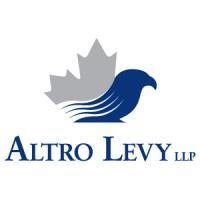If you are Canadian, the answer to that question is: it depends.
People purchasing real estate in the U.S. are faced with different challenges depending on whether they plan on using the property personally or renting it. In this article, we will address the latter issue and its different implications.
A Tax Efficient Structure
There are two main issues to be considered when renting property in the U.S.; income tax and liability. Because rental properties generate income, it is necessary to determine the most tax efficient structure in which to hold the property. On the other hand, because a third party (most likely a tenant) will be using the property, it is essential to create a structure that also offers creditor protection to protect against potential civil liability claims from such third party. A limited liability company (LLC) provides both those elements.
In the U.S., an LLC allows a purchaser to benefit from the low individual tax rates and therefore avoid the higher corporate tax rates inherent to owning property in a corporation. A corporation is an independent taxpayer and is taxed at a higher rate. However, an LLC is not an independent taxpayer but rather a “flow through” entity, which means that its revenue is taxed in the hands of its owner. Therefore, if the owner is an individual, the LLC’s revenue is taxed at the low individual rate.
Creditor Protection
Although one of the main goals of tax planning is to minimize tax, the main advantage of the LLC is creditor protection. When owning property in your personal name, you are exposed to liability claims from creditors such as a tenant who may have suffered injuries on your property while renting it. Should a judgement be rendered against you finding you liable for the injuries, the creditor could seek execution of this judgment not only against your U.S. property but also against the rest of your assets. However, when owning property in an LLC, only the assets in your LLC (i.e. your U.S. property) are within reach of the creditor.
The Issue for Canadian Buyers
After reading this, you may be thinking an LLC is the best solution for your U.S. real estate purchase. Unfortunately this structure can be disastrous for Canadian residents due to double taxation. Under the Canada-U.S. Tax Treaty, a Canadian resident is granted foreign tax credits for any tax paid to the Internal Revenue Service (“IRS”). Those credits can be used to offset the tax owed to the Canada Revenue Agency (“CRA”) on the same revenue or capital gain. Although the IRS considers the LLC as a flow through entity and taxes only the owner personally, the CRA does not recognize the flow through nature of the LLC but rather considers it a separate taxpayer, therefore creating a mismatch on said foreign tax credits. In this type of situation, the CRA will tax the owner of the property on the full amount of the revenue or capital gain and will not allow the use of any foreign tax credits for what was paid to the IRS. This is the known and dreaded double taxation. The owner of the property will pay taxes twice on the same revenue or capital gain, once in the U.S. and once in Canada. Depending on the values and amounts involved, Canadian residents can be required to pay in excess of 70% of taxes on their property income or capital gain due to double taxation. In extreme circumstances, this rate can even climb up to 80%.
That being said, even though LLCs should be avoided in the above-described situation, LLCs can be a valuable tool in a carefully planned structure. As general partner of a Limited Partnership for example. When used in such a structure, an LLC can help provide an extra layer of creditor protection to a Canadian resident while creating very limited tax consequences.
As you probably realised by now, the way you own property in the U.S. is crucial and putting your asset(s) in the wrong structure can lead to very unpleasant surprises. Always talk to a cross-border legal advisor before making any decisions in order to make sure you are aware of all the tax implications.




 />i
/>i
